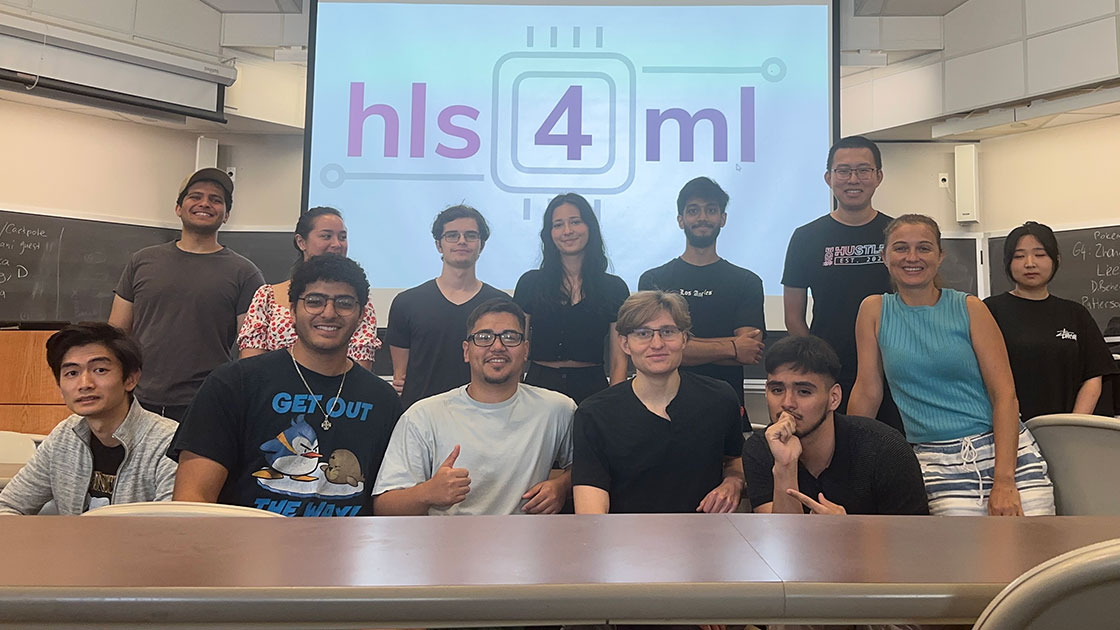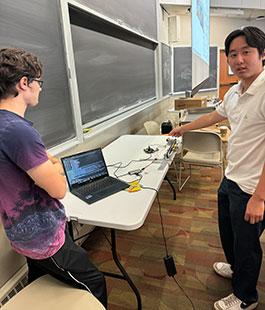hls4ml Summer School Offers Students Training in Edge-AI Hardware Accelerators
The system enables researchers to create customized machine learning hardware with automated design flows

A cohort of 20 undergraduate and first-year graduate students in computer science, computer engineering, and electrical engineering from Northwestern University, University of Illinois Chicago (UIC), and University of Illinois Urbana-Champaign (UIUC), attended the three-day “hls4ml Summer School” workshop on August 23-25, hosted by Northwestern Engineering’s Seda Ogrenci.
Sponsored by the US National Science Foundation Pathways to Enable Open-Source Ecosystems (POSE) Phase II program, the event was designed to introduce students to hls4ml, a Python package Ogrenci and her collaborators are developing for machine learning inference in integrated circuits called field programmable gate arrays (FPGAs).

Ogrenci explained that hls4ml enables researchers to create customized machine learning hardware with automated design flows. The hls4ml tool efficiently translates open-source ML training models (like Keras and PyTorch) to high-level synthesis code that can be transpiled to run fast edge-ML applications on an FPGA, such as a real-time wildfire detection model or crystal structure detection in 4D scanning transmission electron microscopy.
“The hls4ml package allows fast prototyping of a machine learning algorithm implementation in FPGAs, greatly reducing the time to results and giving the user intuition for how to best design a machine learning algorithm for their application while balancing performance, resource utilization, and latency requirements,” Ogrenci said.
The hls4ml project team also includes Nhan Tran, an adjunct faculty member in electrical and computer engineering at Northwestern Engineering and scientist at the US Department of Energy Fermi National Accelerator Laboratory; Ahmet Enis Cetin and Amit Ranjan Trivedi (University of Illinois Chicago); Mark Neubauer (University of Illinois Urbana-Champaign); and Sule Ozev (Arizona State University).

Students also explored the platform’s potential applications in domains including embedded systems, Internet of Things, and materials science discovery.
“The synergy catalyzed between domain experts and hardware experts through tools like hls4ml will help data-driven communities create powerful co-design methodologies,” Ogrenci said. “The summer school is one of several events we are organizing to train the future workforce to leverage this approach.”